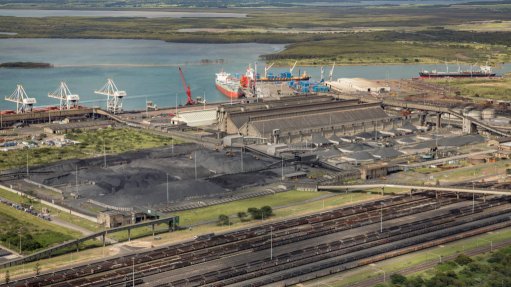South Africa must build renewables skills pool to catch up with renewable power demands - Nordex
South Africa currently has a shortfall of trained and experienced wind energy technicians, after having lost much of its skilled capacity to advanced international markets and, like its international counterparts, it needs a growing pool of qualified candidates to draw from as demand for new power generation grows.
The shortfall is a direct result of the interrupted procurement that has plagued the sector since 2014, says onshore wind turbines manufacturer Nordex Energy South Africa people and culture head Zelrese Brair.
South Africa’s seven-year hiatus and subsequent failed renewable energy procurement rounds resulted in the industry losing hundreds of skilled people, including a large cohort of engineers, wind turbine technicians and general service personnel, who sought employment on the global market.
The industry is playing catch-up and working hard to attract talent back in order to rebuild the dwindling talent pool, given the direct effects on the manufacturing and services sector.
“While there is a keen focus on the challenges resulting from the constrained national power grid, it is not the only stumbling block to unlocking the economic power of the renewable energy industry, warn industry leaders,” Brair says.
If the sector is to shift from its current survival mode, policy certainty and a robust skills base geared towards services and renewable energy manufacturing is necessary, which will enable the sector to become dynamic and competitive.
“We stress that consistency, policy and market certainty are the bedrocks of unlocking the renewable energy sector’s enormous employment and investment potential,” says Brair.
The draft sectoral South African Renewable Energy Masterplan has identified nine key working areas that need support to create an enabling environment for the renewable energy value chain, specifically identifying skills.
The foundation of a clean energy workforce is rooted in science, technology, engineering and mathematics (STEM) education; therefore, South Africa needs to look at government stakeholders to drive school and tertiary education, across all grade levels.
“The development and enhancement of STEM education and the addition of more training facilities will unlock greater job potential for our country in the renewables sector in the same way that it will provide a workforce fit for the industry. To this end, we need to prepare students for careers in renewable energy, and in order to do this, educators must emphasise the importance of STEM learning,” adds Brair.
The wind industry has a diverse skills requirement and needs a broad talent pool that focuses on engineering, including electrical, mechanical, industrial and civil; and focuses on natural sciences and mathematics, including physics, chemistry, mathematics, statistics and environmental sciences.
Further skills required include administration and management skills, including accounting, business administration, finance, procurement and human resource management; as well as social sciences and humanities, including economics, international relations, communication, population studies and law.
These required skills are in addition to other skills such as computer science, management information systems and software engineering, Brair says.
Article Enquiry
Email Article
Save Article
Feedback
To advertise email advertising@creamermedia.co.za or click here
Announcements
What's On
Subscribe to improve your user experience...
Option 1 (equivalent of R125 a month):
Receive a weekly copy of Creamer Media's Engineering News & Mining Weekly magazine
(print copy for those in South Africa and e-magazine for those outside of South Africa)
Receive daily email newsletters
Access to full search results
Access archive of magazine back copies
Access to Projects in Progress
Access to ONE Research Report of your choice in PDF format
Option 2 (equivalent of R375 a month):
All benefits from Option 1
PLUS
Access to Creamer Media's Research Channel Africa for ALL Research Reports, in PDF format, on various industrial and mining sectors
including Electricity; Water; Energy Transition; Hydrogen; Roads, Rail and Ports; Coal; Gold; Platinum; Battery Metals; etc.
Already a subscriber?
Forgotten your password?
Receive weekly copy of Creamer Media's Engineering News & Mining Weekly magazine (print copy for those in South Africa and e-magazine for those outside of South Africa)
➕
Recieve daily email newsletters
➕
Access to full search results
➕
Access archive of magazine back copies
➕
Access to Projects in Progress
➕
Access to ONE Research Report of your choice in PDF format
RESEARCH CHANNEL AFRICA
R4500 (equivalent of R375 a month)
SUBSCRIBEAll benefits from Option 1
➕
Access to Creamer Media's Research Channel Africa for ALL Research Reports on various industrial and mining sectors, in PDF format, including on:
Electricity
➕
Water
➕
Energy Transition
➕
Hydrogen
➕
Roads, Rail and Ports
➕
Coal
➕
Gold
➕
Platinum
➕
Battery Metals
➕
etc.
Receive all benefits from Option 1 or Option 2 delivered to numerous people at your company
➕
Multiple User names and Passwords for simultaneous log-ins
➕
Intranet integration access to all in your organisation





















